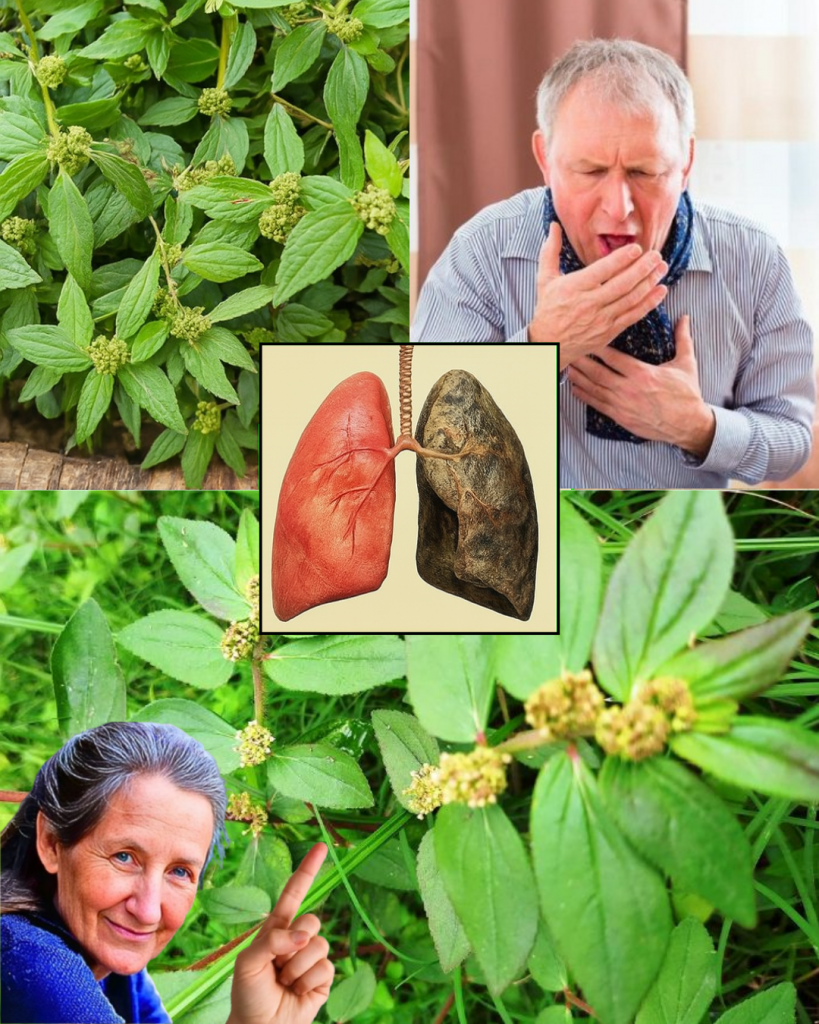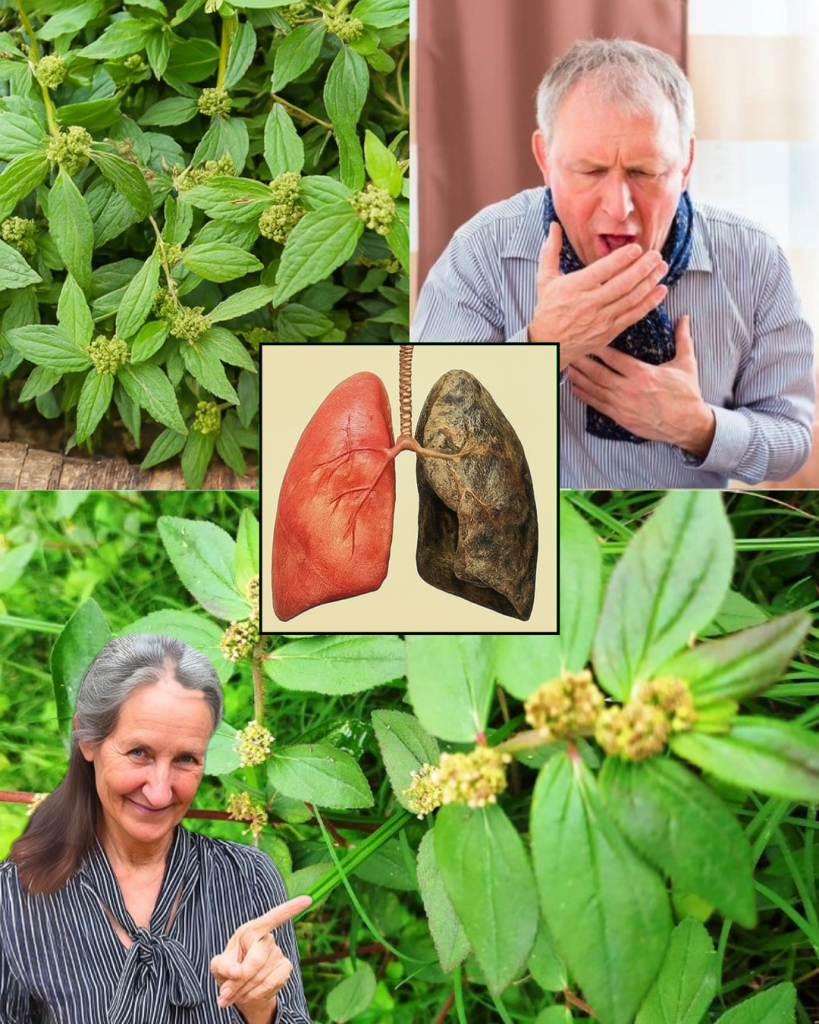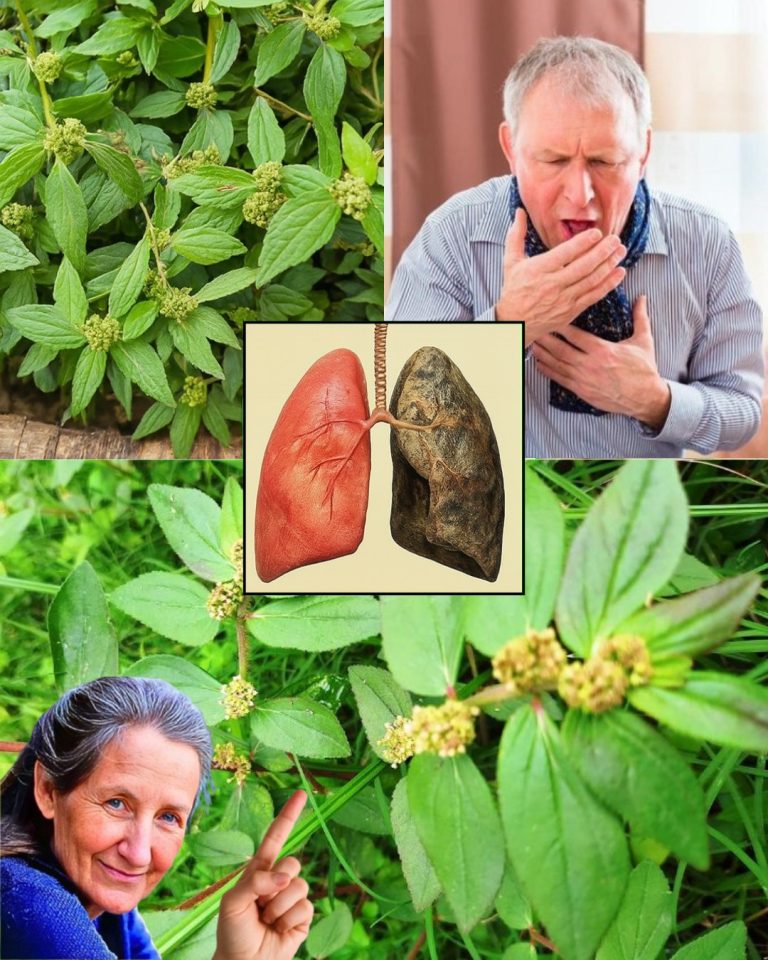Struggling with wheezing, persistent coughs, or allergies that make breathing a challenge? Imagine finding relief in a simple cup of tea brewed from a plant often mistaken for a weed. Euphorbia hirta, commonly known as the asthma plant, is a time-tested herbal remedy revered in traditional medicine across Asia, Africa, and beyond. Known as “tawa-tawa” in the Philippines or “snakeweed” in other regions, this unassuming herb is a powerhouse for respiratory health and much more. Ready to discover how Asthma Plant Tea can transform your wellness routine? Let’s explore its science-backed benefits, how to prepare it, and why it’s a must-have natural remedy.

Why Euphorbia hirta Is a Medicinal Marvel
Euphorbia hirta is no ordinary plant. Packed with bioactive compounds like flavonoids, triterpenoids, and phenolic compounds, it has been used for centuries in Ayurveda and other traditional systems to treat a wide range of ailments. Its nickname, “asthma plant,” highlights its ability to ease respiratory issues, but its benefits extend far beyond the lungs. From fighting infections to soothing inflammation, this herb is a versatile ally for natural healing. Here’s why it’s gaining attention worldwide.
Top Health Benefits of Asthma Plant Tea
Asthma Plant Tea, made from the leaves and stems of Euphorbia hirta, offers a gentle yet effective way to tap into its medicinal properties. Here are the key benefits that make it a standout remedy:
1. Boosts Respiratory Health
Euphorbia hirta is renowned for its bronchodilatory effects, which help relax bronchial muscles and open airways. This makes it a go-to for:
- Easing asthma symptoms like wheezing and shortness of breath.
- Relieving bronchitis and chronic coughs.
- Reducing chest tightness caused by allergies or infections.
Sipping the tea can provide natural relief for those with respiratory challenges, helping you breathe easier. 🌿
2. Acts as a Natural Expectorant
Struggling with mucus buildup? The tea’s expectorant properties help loosen phlegm and clear airways, making it effective for:
- Soothing persistent coughs.
- Clearing congestion from colds or respiratory infections.
- Reducing irritation in the throat and lungs.
This makes it a valuable remedy during flu season or for those with chronic respiratory conditions.
3. Reduces Inflammation and Pain
Thanks to compounds like quercitrin and myricitrin, Euphorbia hirta has potent anti-inflammatory properties. Drinking the tea can help:
- Alleviate inflammation in the lungs and joints.
- Ease pain from conditions like arthritis or muscle soreness.
- Support recovery from inflammatory conditions like gout.
It’s a natural alternative to over-the-counter anti-inflammatory drugs.
4. Fights Infections with Antimicrobial Power
Euphorbia hirta’s antibacterial, antiviral, and antifungal properties make it a versatile infection fighter. The tea can:
- Combat pathogens causing respiratory or urinary tract infections.
- Support recovery from viral illnesses like dengue fever, traditionally used in the Philippines to boost platelet counts.
- Protect against fungal infections like athlete’s foot.
This makes it a great addition to your immune-boosting arsenal.
5. Supports Digestive Health
The tea’s astringent and antispasmodic properties soothe the digestive tract, helping with:
- Diarrhea, dysentery, and intestinal worms.
- Reducing stomach cramps and bloating.
- Promoting overall gut health.
It’s a gentle remedy for those with sensitive stomachs or digestive disorders.
6. Enhances Skin and Wound Healing
While primarily consumed as tea, Euphorbia hirta can also be applied externally. The tea or a paste made from the plant can:
- Speed up healing of cuts, wounds, and rashes.
- Soothe skin irritations like eczema or insect bites.
- Reduce signs of aging thanks to its antioxidant content.
Drinking the tea supports systemic skin health, while topical use targets specific issues.
7. Promotes Detoxification and Urinary Health
As a mild diuretic, Asthma Plant Tea helps:
- Flush out toxins from the kidneys and liver.
- Support urinary tract health by promoting urine flow.
- Reduce the risk of urinary infections.
This detoxifying effect keeps your system clean and balanced.
How to Prepare Asthma Plant Tea
Making Asthma Plant Tea is simple and affordable, allowing you to harness its benefits at home. Follow this easy recipe for a soothing, health-boosting drink.
Ingredients
- 1–2 teaspoons dried Euphorbia hirta leaves or a small handful of fresh leaves and stems
- 1–2 cups boiling water
- Honey or lemon (optional, for taste)
Step-by-Step Instructions
- Prepare the plant: If using fresh Euphorbia hirta, wash the leaves and stems thoroughly to remove dirt or contaminants. Ensure the plant is sourced from a chemical-free environment (avoid roadside plants).
- Steep the herb: Place the dried or fresh plant material in a cup or teapot. Pour boiling water over it and let it steep for 10–15 minutes.
- Strain the tea: Use a fine mesh strainer to remove the plant material, leaving only the liquid.
- Add flavor (optional): Stir in a teaspoon of honey or a squeeze of lemon to enhance the taste, especially if you find the tea’s earthy flavor strong.
- Enjoy warm: Sip the tea slowly, 1–2 cups daily, for 7–10 days as part of a natural healing regimen.
Serving Tips
- Best times to drink: Consume in the morning to kickstart your day or in the evening to soothe nighttime coughing or respiratory discomfort.
- Frequency: Stick to 1–2 cups per day to avoid overconsumption, as the plant’s latex-like sap can be potent in large amounts.

Precautions and Safety Tips
While Euphorbia hirta is a powerful remedy, it should be used with care. Keep these precautions in mind:
- Avoid overuse: Excessive consumption may cause nausea, vomiting, or digestive upset due to the plant’s potent compounds.
- Pregnancy and breastfeeding: The plant may cause uterine contractions, making it possibly unsafe for pregnant or nursing individuals.
- Allergies: Perform a patch test if applying topically, and start with a small amount of tea to ensure you don’t have an allergic reaction.
- Medication interactions: Consult a healthcare provider if you’re on asthma medications, blood thinners, or other prescriptions, as Euphorbia hirta may interact.
- Source carefully: Harvest from clean, pesticide-free areas to avoid contamination. Roadside plants may contain pollutants.
